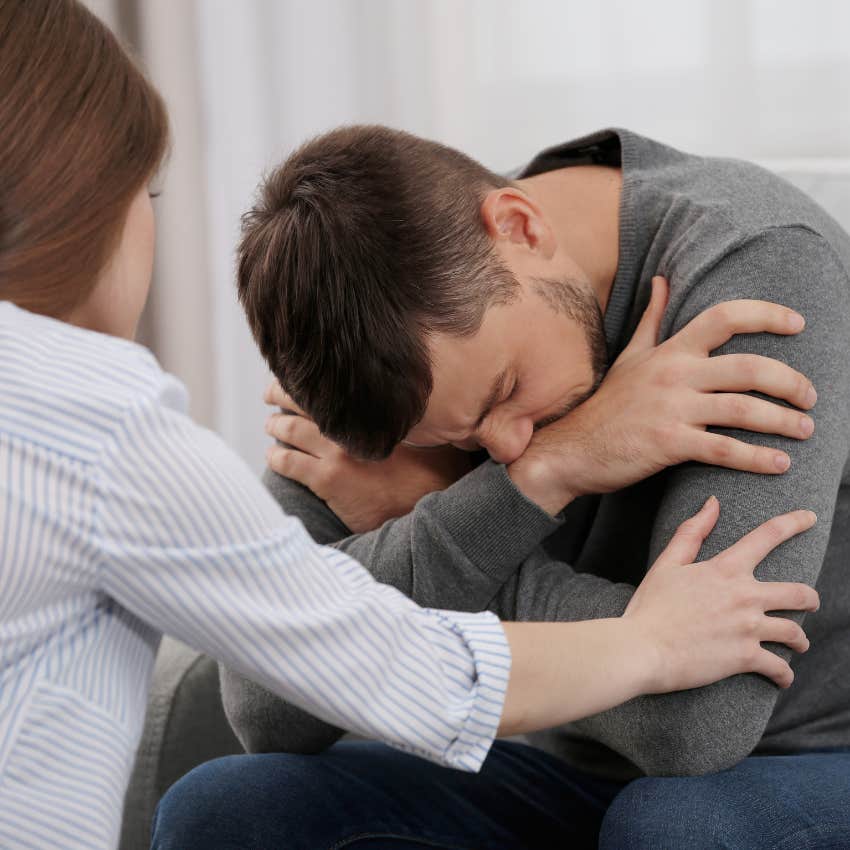The Depressed Marriage: When Two People With Negative Worldviews Fall In Love
With care, awareness, and effort, even a depressed marriage can heal and thrive again.
 Valeria Lendel | Unsplash
Valeria Lendel | Unsplash Sometimes in counseling, I see couples where both partners tend toward depression. When two people with negative worldviews meet, there is a sense of “coming home.” Whether they meet the criteria for Major Depressive Disorder is immaterial. Some are dysthymic, meaning they have a low level of depression or negativity at all times, some have a depressive worldview that comes out under stress, and others are somewhere in between.
Most have experienced bouts of depression since adolescence or earlier. In some cases, depression also manifests as chronic pain (back pain, IBS, migraines) in one or both partners. Although the negative worldview generally predates starting a family, the first discrete episode of depression can be post-partum in one (or both) or related to another specific stressor, like the loss of a job or a family member passing away.
When two people with negative worldviews meet, they will often feel a sense of familiarity. This is the “coming home” feeling that people experience when meeting their imago partner.
If they meet in adolescence, both partners may have a nihilistic “the world sucks” type of outlook that bonds them. As adults, this worldview isn’t expressed as readily, but it’s there underneath the surface. Frequently, an “us against them” attitude develops, where family members, friends, coworkers, and the like are seen as out to hurt the couple in some way.
Often, couples in a depressed marriage will connect over their suspicion of others and their predictions that nothing will ever work out as planned.
 Africa Studio / Shutterstock
Africa Studio / Shutterstock
Frequently, two depressive partners have difficulties with their parents and inlaws, who likely have depressive tendencies. Things never seem that “easy” to people who are depressed.
At first, the relationship seems like the only bright spot in this dark worldview. The partners understand and support one another in ways that nobody ever has before, and the partners seem like saviors to each other.
However, over time, the relationship begins to fall from its pedestal and begins to be yet another reason for the partners to be upset. Disappointments are common in marriage, but depressed people may not have the inner strength to recover easily from empathic ruptures.
In this disillusionment phase, a marriage between two depressed people can start to feel like quicksand.
It can be paralyzing and codependent, with partners only leaving the house for work, and neither engaging in anything that doesn’t feel like a duty (work, childcare, housework.)
They may fight frequently or not at all, but they share a negative perspective about themselves, the world, and the future. Unsurprisingly, their children are likely to imitate their parents and act depressed themselves. All members in a household like this may feel lonely (except if siblings bond together, which is less likely than you would think, as siblings often model their relationship on the parental relationship that they see).
The first step to changing a depressed marriage is recognizing what it is. There is not just one partner who is the problem. The problem pervades the marriage and emanates from both partners’ sense of hopelessness and “stuck” -ness. Likely, both are frustrated with their jobs, families, selves, and partners and even if the narrative of the marriage is that only one partner is clinically depressed, both partners need to look at the contributions of both partners.
It is rare for a depressed person to pair up with someone who is generally optimistic.
They would not feel that sense of belonging or feeling like someone just “gets” them. There can be cases where both partners start reasonably happy and then one suffers a stressor that triggers a depressive episode, but that is not the case in this type of marriage.
Here, if partners objectively look back at their courtship and early marriage, there has been a long-standing culture of complaint and feeling victimized that derived from both partners. (If you grew up in a depressed household, you will recognize that this feeling came from both parents to a lesser or greater degree based on the day or year.)
If there are children involved, partners need to focus on how their depressive thought patterns impact their kids. When depression is the lens through which parents see and react to the world around them, this teaches their children how to think and react as well. In depressed homes, kids grow up thinking of themselves as victims and act cynical beyond their years. They have poor self-esteem and can act angry and sad much more often than their peers.
For depressed partners, reading books on depression (for depressed moms, a good one is The Ghost In The House) can be helpful, but my primary recommendation is that both partners in this type of marriage start seeing their counselors. Couples therapy is useful as well, but for both people to be able to focus on their depressive tendencies, it is best to have space and time allotted to individual work as well.
If children have already emulated their parents’ “learned helplessness” (the idea that life is so hard that you might as well give up when faced with a stressor), then it is important to get the children into their therapy as well; cognitive behavioral therapy is highly effective with kids.
Depressed marriages can recover, but only with the motivation of both partners.
If this is your situation, share this with your spouse and try to formulate a plan of attack. Don’t let depression sabotage your marriage or family life.
If you or somebody that you know is experiencing a mental health crisis, there is a way to get help. Call SAMHSA’s National Helpline at 1-800-662-HELP (4357) or text "HELLO" to 741741 to be connected with the Crisis Text Line.
Dr. Samantha Rodman Whiten, aka Dr. Psych Mom, is a clinical psychologist in private practice and the founder of DrPsychMom. She works with adults and couples in her group practice Best Life Behavioral Health.

